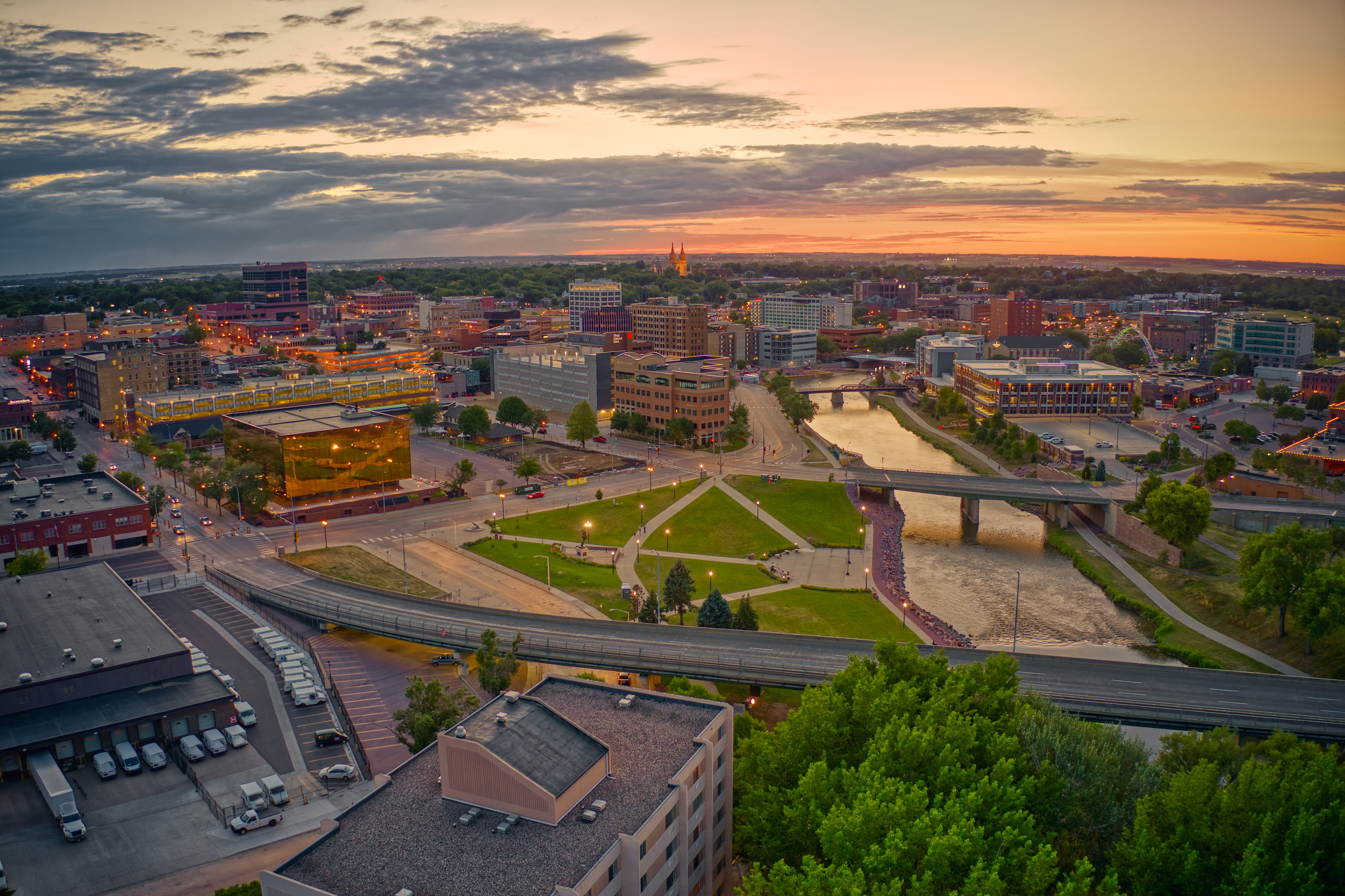Published April 8, 2024
How Sioux Falls Real Estate Taxes Compare to Other Cities

Property taxes are an important factor in a community’s cost of living and can impact the overall affordability of housing in Sioux Falls and elsewhere. With a local real estate market that has been experiencing growth, knowing how these taxes stack up against other regional cities is key for both current and prospective homeowners.
Fortunately, Sioux Falls real estate taxes are about as good as you’re going to find in a major city across the Midwest, and Sioux Falls home prices are still very reasonable compared to the other Midwestern cities.
By working with a realtor like the Tyler Goff Group, potential homebuyers can take advantage of Sioux Falls’ tax-friendly residential and business climate, and home sellers can market those same benefits to help maximize a home's value and ensure a swift and profitable sale.
Our experienced real estate team offers extensive local knowledge and uses cutting-edge technology to help you find and negotiate a new home or market and sell your existing home effectively.
Sioux Falls Real Estate Taxes Compared
Looking at median real estate taxes for more than a dozen large Midwestern cities, it’s hard to beat Sioux Falls’ combination of low tax burden and reasonable home prices – and that’s not even factoring in the fact that there are no personal income taxes in South Dakota.
According to the SmartAsset 2023 Study, only a handful of other Midwestern cities have a lower median tax burden than Sioux Falls’ $3,110 per year, and of those only Rochester, St. Louis and Denver have a lower tax percentage of the median home value – but the Rochester real estate market is more expensive than Sioux Falls, and the median home in Denver costs more than twice as much as in Sioux Falls.
Here’s how Sioux Falls compares:
Sioux Falls
Median real estate taxes: $3,110
Median home value: $259,900
Tax % of Value: 1.20%
Fargo
Median real estate taxes: $3,142
Median home value: $248,600
Tax % of Value: 1.26%
Omaha
Median real estate taxes: $3,566
Median home value: $217,000
Tax % of Value: 1.64%
Lincoln
Median real estate taxes: $3,710
Median home value: $231,200
Tax % of Value: 1.60%
Des Moines
Median real estate taxes: $3,465
Median home value: $171,800
Tax % of Value: 2.02%
Cedar Rapids
Median real estate taxes: $3,033
Median home value: $169,300
Tax % of Value: 1.79%
Rochester
Median real estate taxes: $2,838
Median home value: $275,300
Tax % of Value: 1.03%
Minneapolis
Median real estate taxes: $3,690
Median home value: $324,400
Tax % of Value: 1.14%
Madison, WI
Median real estate taxes: $5,967
Median home value: $321,500
Tax % of Value: 1.86%
Green Bay
Median real estate taxes: $2,855
Median home value: $178,700
Tax % of Value: 1.60%
Milwaukee
Median real estate taxes: $3,469
Median home value: $166,100
Tax % of Value: 2.09%
Chicago
Median real estate taxes: $4,913
Median home value: $325,000
Tax % of Value: 1.51%
Davenport
Median real estate taxes: $2,509
Median home value: $148,400
Tax % of Value: 1.69%
St. Louis
Median real estate taxes: $1,949
Median home value: $188,200
Tax % of Value: 1.04%
Denver
Median real estate taxes: $2,410
Median home value: $547,100
Tax % of Value: 0.44%
Understanding Property Taxes in Sioux Falls
In Sioux Falls, your property taxes are a vital part of local funding, directly affecting community services and education. These taxes are based on property assessments and local tax rates.
When examining the real estate taxes in Sioux Falls, South Dakota, it's essential to note that the city's property tax rates are influenced by a combination of county, city, school district, and township levies. The average effective tax rate in Minnehaha County, where Sioux Falls is the largest city, is at 1.40%, which factors into the overall tax burden for property owners.
Assessment and Valuation
Your property in Sioux Falls is assessed annually to ensure it reflects its current full and true market value. Assessment is the process used to determine this value and forms the basis for your property tax calculation. In South Dakota, property is typically equalized to 85% of this market value for tax purposes. If, for example, your home's full market value is assessed at $230,000, its taxable value would be $195,500 (85% of $230,000).
Property Tax Rates and Payments
The property tax rate in Sioux Falls, as in the rest of South Dakota, is determined by the budget needs of various local government units: Minnehaha County, Lincoln County, the city of Sioux Falls, school districts, and townships. They set their levies based on their budgets, which results in your overall property tax rate. This rate is applied to your property’s assessed value to calculate the amount of taxes you owe. On average, South Dakota has an effective property tax rate of 1.08%.
Specifics of Sioux Falls Tax System
Sioux Falls lies within Minnehaha and Lincoln counties and adheres to the property tax system defined by South Dakota law. Property tax increases are capped, ensuring that even if your property's assessed value doubles, your taxes will not. This is part of the state's effort to maintain fair taxation practices for property owners.





